Why ADHD Kids Argue So Much — And How to Actually Stop It | Ryan Wexelblatt, LCSW Licensed Clinical Social Worker | ADHD Specialist | Father

If you're exhausted from constant power struggles with your child, you're not alone—and you're not doing anything wrong. For many parents of ADHD kids, the arguing, debating, and negotiating can feel endless. But here’s the truth: it’s not about your child being difficult or disrespectful. It’s about lagging executive function skills—especially social executive functioning and cognitive flexibility.
I’m Ryan Wexelblatt, LCSW, a licensed clinical social worker, former school social worker, and the father of a son with ADHD and learning differences.
ADHD Is an Executive Function Developmental Delay
ADHD is not a behavior disorder or a motivation problem. It’s a developmental delay in executive functioning—skills that help us regulate emotions, shift perspectives, manage impulses, and handle flexible thinking. These skills are often 2–3 years behind in ADHD kids, and they develop inconsistently.
That means a 10-year-old with ADHD might function like a 7-year-old when it comes to emotional control, perspective-taking, or flexibility—and those skills can vary day to day.
Why ADHD Kids Argue: The Real Reasons
There’s no single reason why ADHD kids argue. Instead, there are several overlapping factors that fuel this behavior:
Cognitive Inflexibility
One of the most overlooked executive function skills is cognitive flexibility—the ability to go with the flow, accept new ideas, or shift perspectives. Many ADHD kids struggle here. When they’re inflexible, they become argumentative because they can’t easily accept “no,” compromise, or adapt when something unexpected happens.
“The more flexible I became, the more inflexible my son became.” —Parent from Scaffolding Better Behavior
If you constantly accommodate your child’s inflexibility, it reinforces their rigidity. That’s why I teach:
“Flexibility is cultivated. Inflexibility is accommodated.”
Weak Perspective-Taking (Social Executive Functioning)
Perspective-taking—understanding how others feel and how you’re coming across—is a core social executive function. Many ADHD kids don’t realize how their tone, behavior, or rigidity affects others. This leads to black-and-white thinking and an inability to see that someone else might be right.
This is also why ADHD kids often say they’re being bullied when peers simply don’t want to follow their lead on the playground. They don’t understand how they’re being perceived.
Novelty-Seeking
The ADHD brain craves stimulation. Arguing becomes a form of mental stimulation—especially if they’re bored or understimulated. The back-and-forth of a debate gives them an emotional "hit," even if it frustrates everyone else.
Attention and Emotional Reactivity
Arguing often earns undivided attention from parents—especially when it escalates. When ADHD kids learn that emotional reactivity guarantees a response, it reinforces the behavior. That’s why I teach parents to disconnect the power source—don’t engage in the arguing cycle.
And no, this doesn’t mean ignoring your child. It means not rewarding a behavior that doesn’t serve them with emotional energy.
“But I Want My Child to Feel Heard…”
You can validate your child and be emotionally available without reinforcing argumentativeness. Feeling heard doesn’t require giving in to every debate. In fact, the most loving thing you can do is teach them that arguing won’t get results.
When parents set clear boundaries and model emotional regulation, they teach their child what it means to engage respectfully—even when frustrated.
What to Expect When You Change Your Response
When you stop feeding into the arguing, things might get worse before they get better. That’s because you’re removing their control tactic. It’s common for behavior to escalate temporarily—through emotional manipulation, dramatic language, or even threats—before it improves.
Stick with it. Consistency is the intervention.
How to Reduce Arguing with ADHD Kids: The Takeaways
- Recognize the root cause of your child’s behavior—it’s not personal, it’s a lagging skill.
- Don’t engage in debates. Stay calm, brief, and consistent.
- Build social executive function skills, like perspective-taking and flexibility.
- Don’t accommodate inflexibility. Set expectations and follow through.
- Teach through structure, not through emotional processing or endless talking.
Want Step-by-Step Strategies That Actually Work?
Inside the ADHD Dude Membership Site, I teach parents the exact scripts and strategies to reduce arguing, build emotional regulation, and increase cooperation at home. You’ll get courses like:
- I created Capable and Confident (for parents of kids ages 4–7) and Scaffolding Better Behavior (for parents of kids 8 and up)—two parent behavior training programs for families looking for practical solutions to address the most challenging ADHD-related behaviors, like constant arguing and emotional blowups.
These tools were designed for parents who are done with trial-and-error and need a clear roadmap—especially if they have ADHD themselves.
👉 Learn about the ADHD Dude Membership today and start parenting with clarity.











